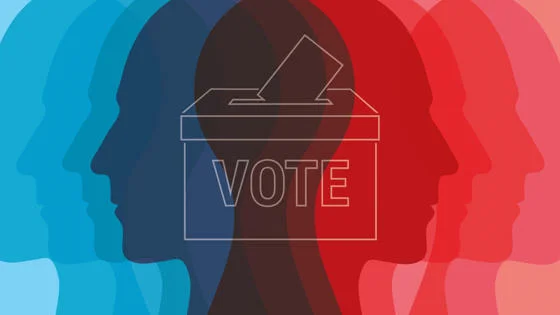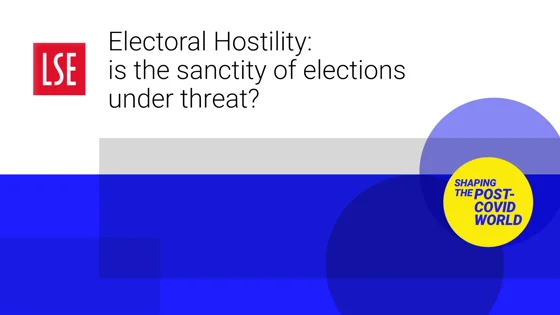Optimising the voter experience

We at the Central Electoral Commission (CEC) firmly believe that using insights from the Bruter and Harrison research [has] contributed to better understanding [of] the way we serve voters in elections regardless of age, gender or disabilities, and will lead to a better experience and participation of the Palestinian citizens in the coming years.
What was the problem?
What goes on in the minds of voters when they cast their ballot? And how do citizens actually experience elections?
The role played by emotions, memories, and personality, and how they interact with the design of electoral procedures, is under-studied in election research, which often concentrates on simply who wins and who loses, and public attitudes to outcomes. However, these questions are fundamental to understanding how people engage with the democratic process. For example, voter psychology raises questions about the effect of in-person or postal voting, the likelihood of voting at all, and how people feel as a result of these different forms of participation.
By examining elections from the perspective of voter psychology, and the effect of the organisation and design of elections (electoral ergonomics), research has the potential to improve the electoral experience for voters in general and categories of chronically under-represented citizens in particular, such as first-time voters and disabled people.
What did we do?
Since 2011, the Electoral Psychology Observatory (EPO, previously ECREP), led by Professor Michael Bruter and Dr Sarah Harrison, has conducted research on electoral psychology and how it relates to electoral organisation. This work represents a shift in approach to electoral research, making it truly "voter-centric". Fundamentally, this involves refocusing electoral research on the voter’s point of view, for example by seeking to understand how elections affect citizens’ emotions.
This shift has important implications for how we think about elections, the questions we ask, the methods we use, and our understanding of the interface between voters’ psychology and electoral organisation, which the EPO describes as electoral ergonomics.
This research covers voters’ psychology and the nature and implications of their electoral experiences, with a focus on issues that shape the first electoral experience and affect vulnerable categories of voters (disabled voters, illiterate voters, minorities).
The research employed innovative methodologies, including visual electoral experiments, focus groups, and panel election diaries, along with classic approaches, such as panel study surveys, physiological experiments, field experiments, and interviews.
From this research, Bruter and Harrison identified how voters experience elections in emotional ways: 63 per cent of Americans say that election night makes them feel emotional; and 34 per cent of British voters had tears in their eyes in relation to the European Union (EU) membership referendum. Overall, they found elections to be positive experiences, with 63 per cent of voters saying they feel happy in the polling booth, 60 per cent excited, 74 per cent proud, and 79 per cent say that it is an important moment for them. Excitement is a bigger driver of turnout than duty to vote, especially amongst young people.
They also discovered that participating in one of the first two elections in a citizen’s life will likely make them routine participants, whilst abstaining from both will likely lead to chronic abstention.
Looking at the specific effects of the ergonomics of elections, Bruter and Harrison found that voting patterns differ for voters who vote remotely: in-station voting makes voters happier and more positive about democracy. But not all remote voting options are created equal: in US elections, "advance" voting leads people to place more value on the social aspect of voting than "absentee" voting, and advance voters are more likely to vote at the next election.
What happened?
The EPO's research has been used to improve election processes and enhance the electoral experience for citizens, notably disabled and first-time voters. This is the result of the EPO's sustained engagement with numerous electoral stakeholders, including electoral commissions, governments, polling agencies, and electoral observers around the world.
In May 2015, Bruter and Harrison led a two-day training session for senior staff of the Central Electoral Commission (CEC) of the Palestinian Territories. This addressed a variety of electoral psychology issues important to the Palestinian context – including social divisions, gender inequalities, and civic education. Subsequently, electoral reforms enacted in 2016 introduced new laws on candidate eligibility, allowing greater equality in gender representation and lowering the minimum age requirement. Technical changes have led to the redesign of ballot papers and polling stations to better accommodate the needs of disabled voters.
Bruter and Harrison have also provided expert (confidential) advice to a democratic government as it proposed a set of reforms to the country’s electoral systems. Their analysis of electoral psychology data showed that the proposed reforms could increase unfairness, negatively affect the representation of some of the country’s minorities, entrench gender inequality, and be viewed negatively by – and lack the acceptance of – the public. Their report convinced the government to limit its planned reforms, resulting in compromise changes.
EPO research has been used in initiatives intended to give first-time voters and those with learning and cognitive disabilities a greater voice in electoral processes. Since 2019, Bruter and Harrison have worked with the UK’s All-Party Parliamentary Group on Votes at 16 to help it build a case for the extension of the voting franchise to 16- and 17-year-olds. They have engaged in similar work in South Africa, with pilot schemes on engaging first-time voters, and in Australia, where their work focused on the experience of disabled voters.
The EPO team has also worked regularly with opinion polling agency Opinium on international electoral survey studies, providing research input on the scripts for questionnaires, and on the deployment of surveys at various points in the election cycle. EPO findings on electoral psychology helped Opinium to develop new measures for identifying which voters are most likely to change their minds in the run-up to an election, and to account for the effect of voter registration before applying weightings to avoid overestimating youth abstention. Opinium’s Chief Executive considers this collaboration to have been key to them understanding the voting psychology of British voters and being the most accurate research agency at the 2019 UK general election as well as one of just two agencies to have accurately called the outcome of the EU membership referendum in 2016.
Across these projects and others, the research has been used to make concrete changes to the running of elections, such as to polling station organisation and ballot paper design, developed the skills and capacities of those working on elections, and shaped and encouraged the recognition of best practice among electoral practitioners. These changes have contributed to an improved experience of elections, notably among disabled, first-time, and minority voters, and to greater accuracy in election polling.


